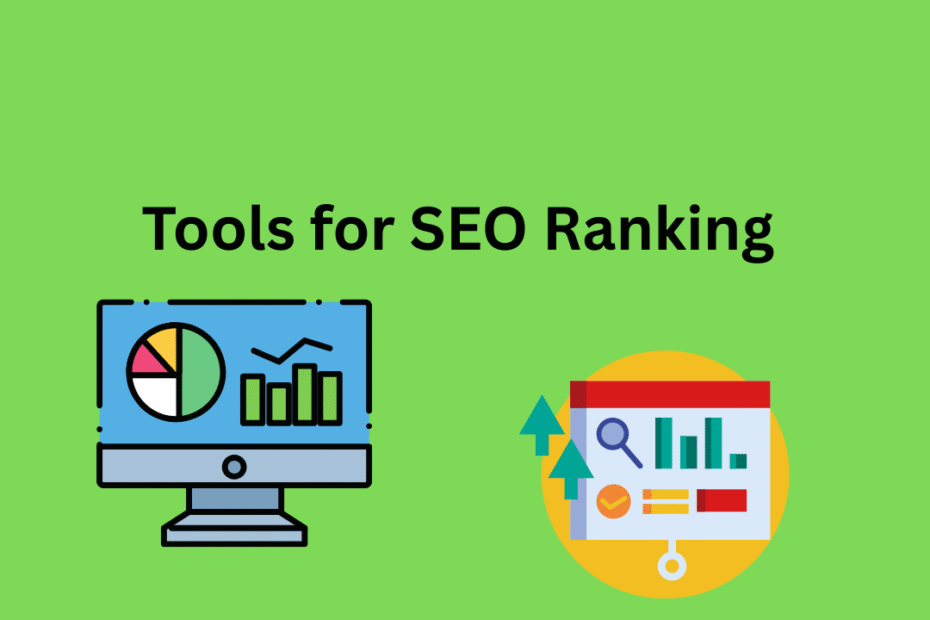Increasing your search engine ranking is imperative if you wish to attract more visitors and become a stronger online presence. Yes, the right tools for seo ranking honestly make a world of difference.
I personally have experienced how the right SEO tools can assist in monitoring progress, researching competition, and tweaking successful strategies. How do you skip the guesswork? That’s a sea change.
Picking the right SEO tools enables you to concentrate on what is important. These are my top ten recommendations to -Improve your rankings regardless of your experience level .
In a nutshell, these are tools that help you do your SEO and allow your site to be found.
1) Semrush
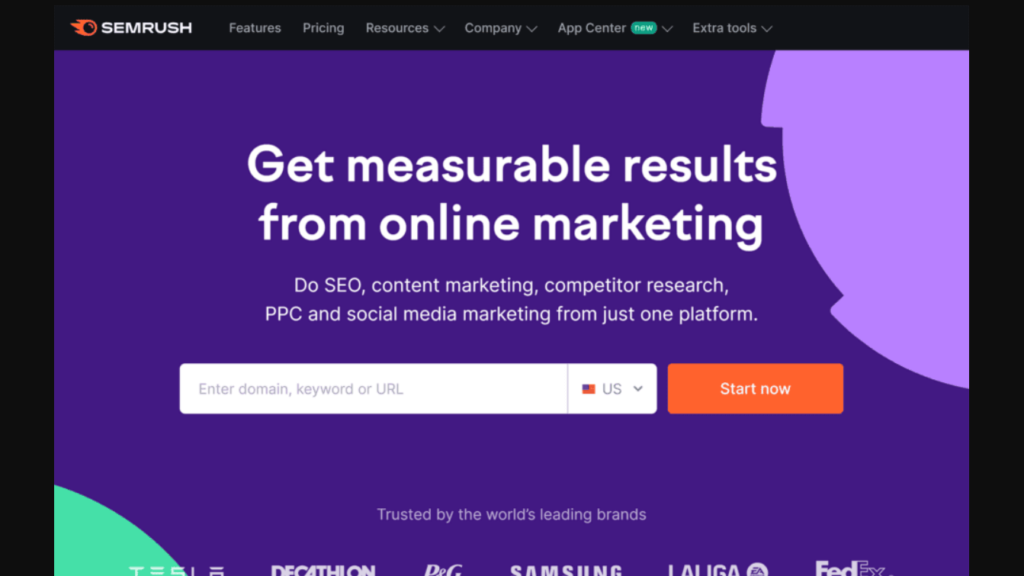
Semrush is unique in that it’s an all around SEO software . I use it because, all the above things it, also provides me keyword research, site audits, backlink analysis, and rank tracking all in one spot.
Their AI capabilities generate contents faster and help me in tweaking my SEO strategies. I can watch my competitors and adjust my plan based on actual numbers.
It is easy to navigate, overall, Semrush is user-friendly for both beginners and seasoned pros. Starting at around $140 per month, it’s a bit steep, but you get a ton in one location.
I enjoy having control of my SEO work with daily updates and very detailed reports. Semrush keeps me in the loop so that I don’t lose my position in a searh ranking.
2) Ahrefs
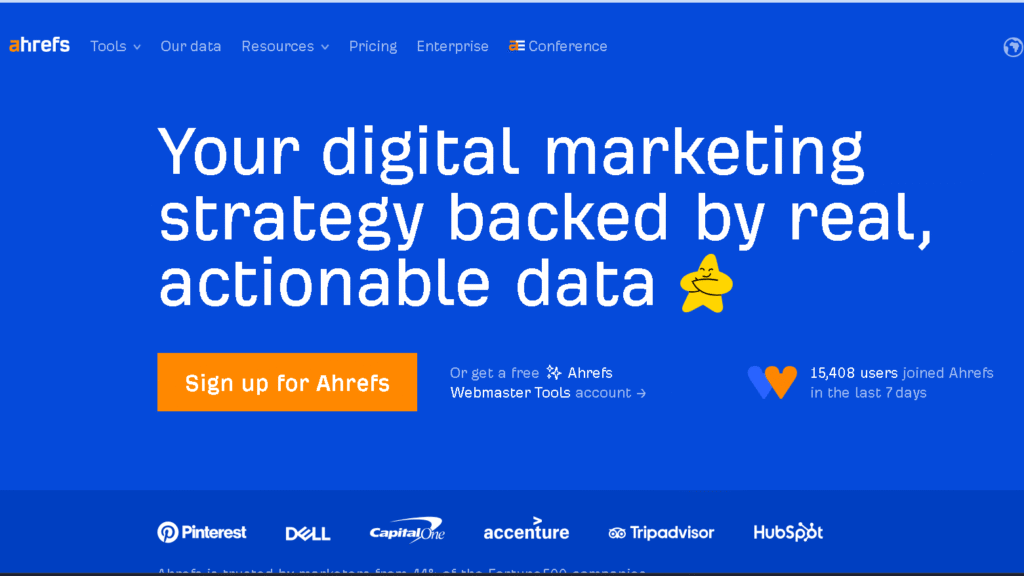
Ahrefs is my keyword ranking tracking and backlinks analysis resource. It ranges from site audit, to competitor research, on how my site ranks on search results in that are.
I particularly find useful their Rank Tracker feature which is now also showing keyword positions on desktop/mobile. In that case it’s easy to determine the relative visibility to competitors.
For regular SEO you can use many of Ahrefs tools for free, such as Keyword Generator or Backlink Checker. One thing I do like is that I can integrate Ahrefs data with others tools to have better reports.
If you are serious about SEO, Ahrefs is that command center. It is, yes, accurate and it works for both beginners and vets.
There is the post I wrote about Ahrefs competitors. You may read it.
3) Moz Pro
Moz Pro is an all-in-one SEO tool set for me. I refer to it often for tracking keyword rankings and analyzing backlinks which are both essential for site visibility.
It is clean and easy to navigate, which really just lessens the pain. I will review site audits that are highlighting technical issues so I can correct what may be impacting my rankings.
It even helps me conduct keyword research to find out which terms are useful to me. The ability to monitor domain authority and track that over time is a nice touch since I can see the fluctuation in my websites strength.
The other tools that I use are most often employed in conjunction with Moz Pro, it’s definitely a go-to for beginning research and long-term tracking. It’s basic but it’s also very powerful, and a must-have for anyone really.
4) Ubersuggest
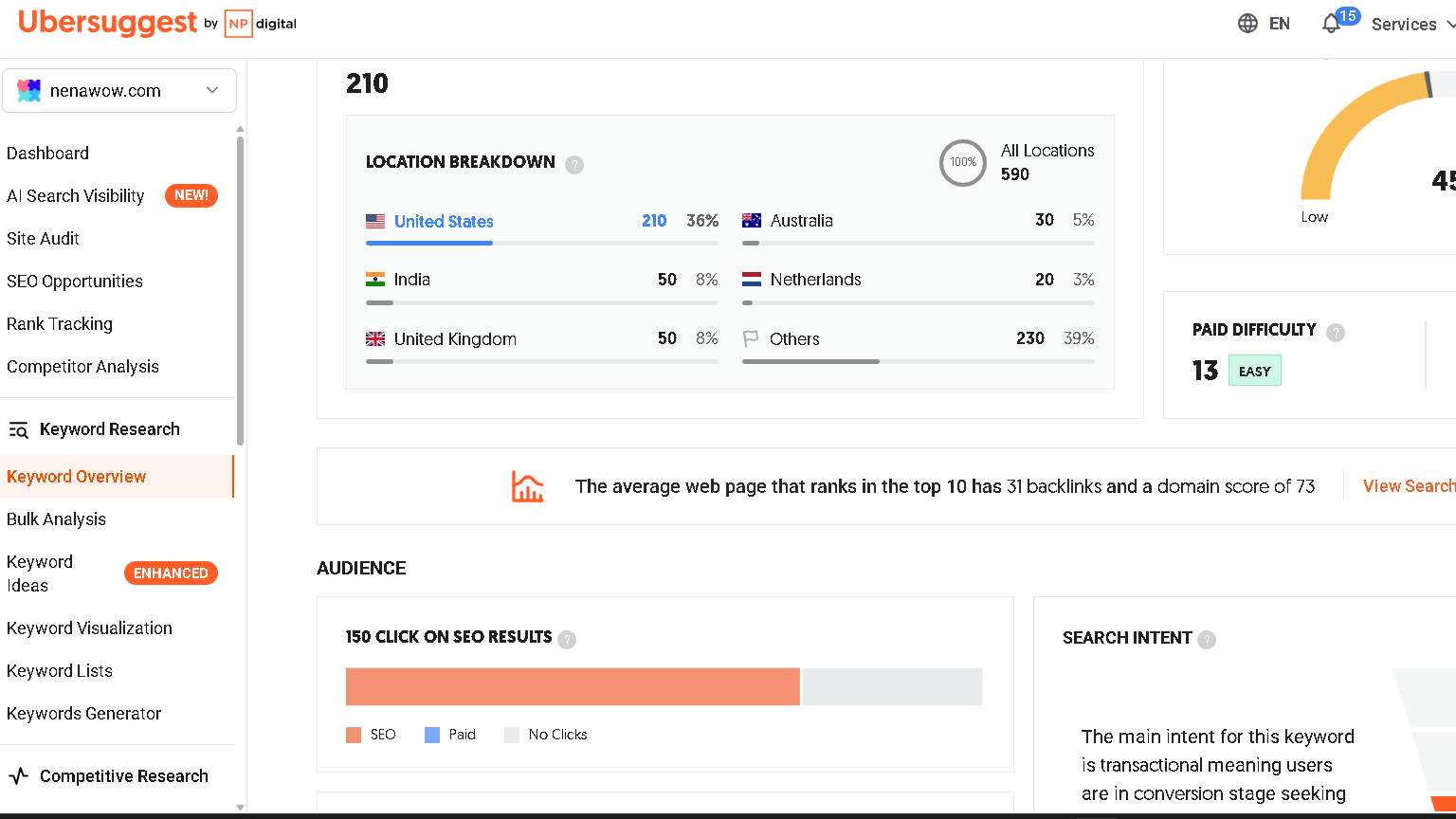
I like Ubersuggest for simple keyword research. It aids in finding keywords to improve my search engine ranking as well as provides data on the volume and competitiveness of certain search terms.
The competitive analysis is helpful as well – it reveals their best pages and keywords and also provides me with inspiration for my own posts . The site audit feature is an easy way to identify technical SEO issues.
It’s also cheap, and the interface is intuitive enough I don’t need to know a lot in order to use it. Yes, it’s not fancy, but it does the basics to grow a website traffic.
5) Serpstat
Serpstat is also a good all-in-one SEO software. Its rank tracking functionality also helps me to keep track of keyword positions on multiple search engines relatively easily.
I can also view the historical performance of keywords as far back as I would like as well as visibility and competitor rankings. That gives me perspective of where I am at in the market.
Serpstat is also useful if you’re looking for good value. It is reasonably priced, and has a good set of features; good for small business or individual projects.
In addition to rank tracking it also has site auditing and backlink analysis. I can perform almost all SEO duties without flipping between platforms.
6) SpyFu
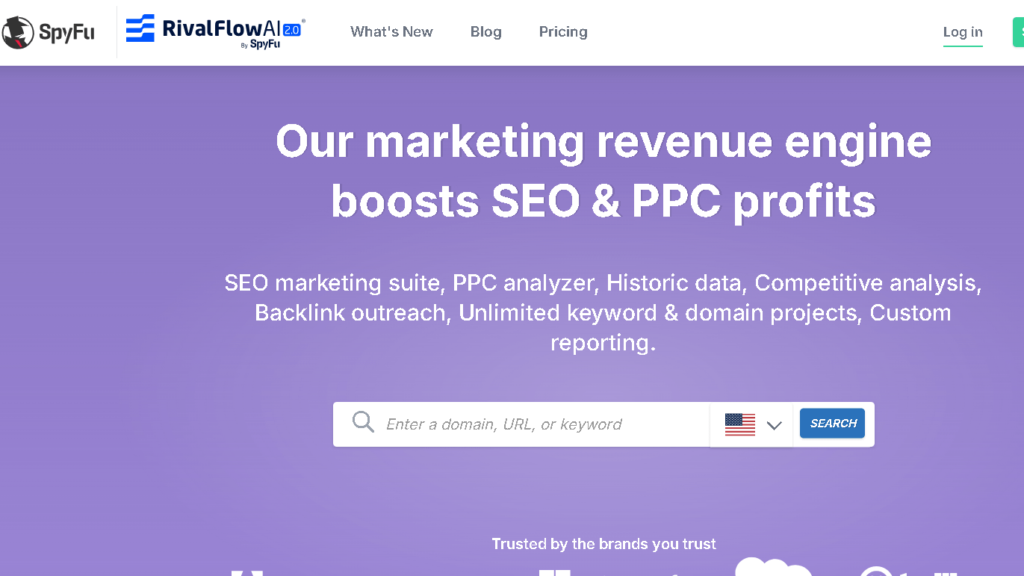
SpyFu lets me understand what keywords my competitors are ranking for. It displays both paid ads and organic rankings, so I can get some ideas for new keywords and where to beef up.
It keeps track of keywords ranking, on a scheduled time, I can define a set of keywords to be updated weekly. It’s not like they have real-time tracking but their weekly reports served my purposes just fine.
It does have backlink analysis, so I can see what sites link to my site and my competitors’ sites. Which makes it easier to plan link building campaigns.
7) Majestic
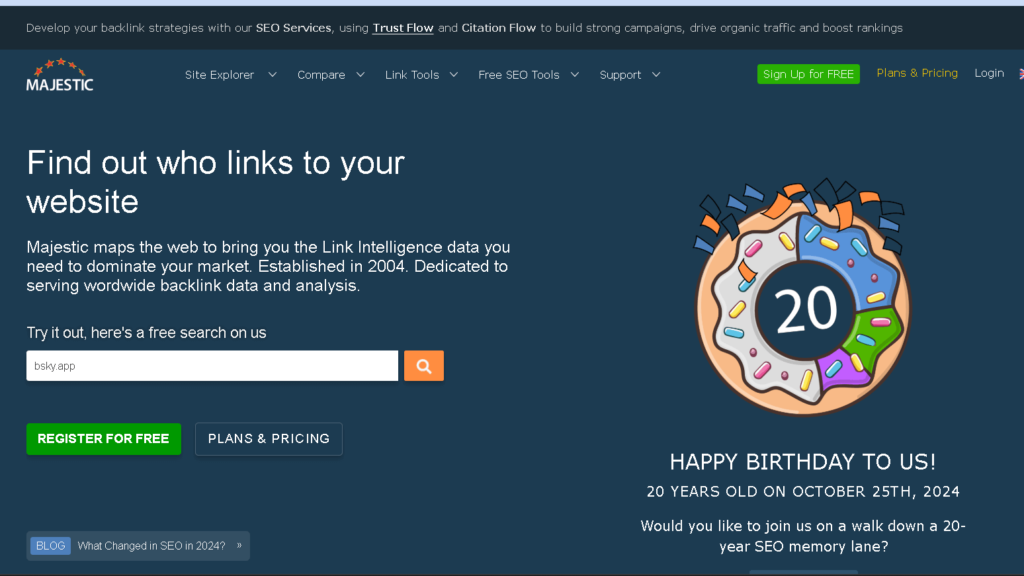
I use Majestic when I want detailed backlink report. Its massive link index , and web crawler allow me to see how websites construct and disseminate links.
This data also indicates quality of backlinks and the impact areas, useful for examining backlink profiles and identifying problems. It is powerful for link analysis but perhaps not as wide in other aspects of SEO.
I almost always use Majestic with a few other tools for keyword research or site audits. Also the plans are flexible and lots of data cap options – so it fits my budget.
8) Screaming Frog SEO Spider
With Screaming Frog SEO Spider I can crawl websites quickly and uncover SEO issues such as broken links, duplicate content and missing tags. It is a huge time saver versus manual checks.
The free version will crawl up to 500 URLs, and a license removes these restrictions and has additional functionalities. It integrates with Google Analytics and Search Console for more analytics.
Screaming Frog is suitable for small and large sites. It allows me to emulate various user agents, such as Googlebot, and it does support JavaScript rendering for newer websites.
I am using it for very detailed SEO audits and the information is clear enough so that I can solve the problem at the spot. Its a good choice for SEO-workers and webmasters, and for the price.
9) Google Search Console
Google Search Console is my primary instrument for tracking how my site shows in Google Search. I can view my incoming keywords, as well as my page rank.
It will alert me to potential problems that may prevent my site from appearing and provide concrete suggestions to rectify, such as broken links or slow pages. I also use it to see if Google indexes all my relevant pages.
It’s free, it’s easy to set up, and it meshes nicely with Google Analytics. Understanding search traffic is important for anyone with a website, if for no other reason than as part of your site’s health.
10) SE Ranking
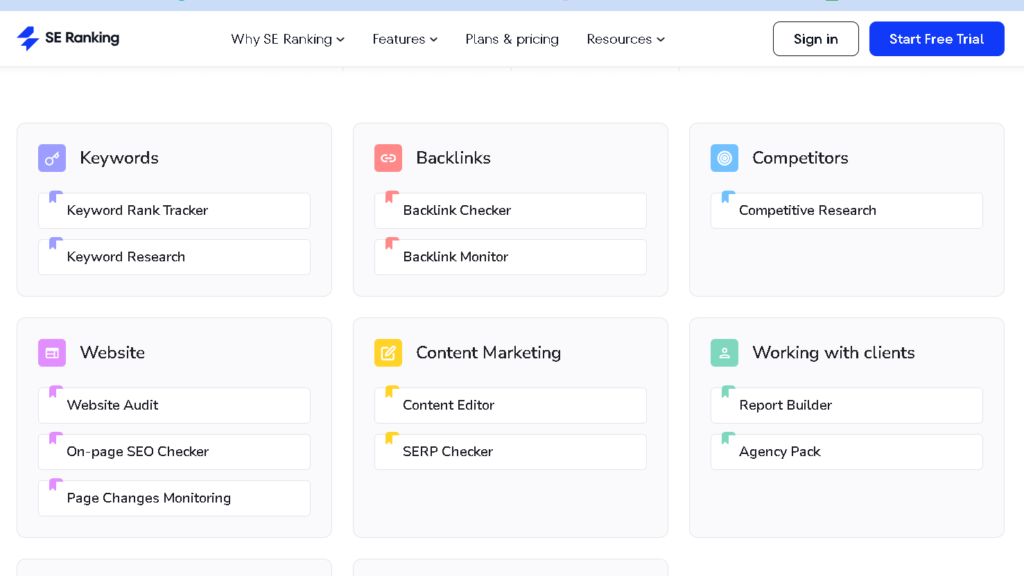
I use SE Ranking for rank tracking and live site performance and find it to be a good all in one. It includes backlink analysis, website audits, and competitor research, applications useful for both freelancers and agencies.
The platform is user friendly and data is updated on a regular basis. Instead, I use A.I.-based tools to refine my content so I’m not wasting time guessing.
The rates are cheaper than many large platforms. SE Ranking isn’t the best in category at anything, though it does a good job with daily SEO monitoring and improvements, although some of the more specialized features, like white- label reporting, can be found better through alternative programs.
I do like having a lot of things all in together. It makes just business sense for those that need a complete toolset without spending day after day going back and forth between software.
How SEO Tools Improve Ranking
SEO tools help to improve rankings by providing the data and information necessary for making intelligent decisions. They aid in keyword analysis, technical problems, or even studying competitors for growth opportunities.
Keyword Research Capabilities
By using SEO tools, I identify what is it that people search for, getting to choose the better keywords. They display search volume and competition difficulty ratings, to assist in allowing me to choose keywords that will drive traffic and that I’m not wholly unable to compete for.
Other tools find related or “long tail” keywords, which may bring more specific traffic – those people are often more inclined to take action. Once and a while I can check the rankings to see if my strategy is working or needs adjusting.
Good keyword research is what good content is built on to get in front of the right people and in searches.
Technical SEO Enhancements
Technical SEO is all about fixing issues behind the scenes that wreak havoc on your rankings. I employ tools to identify broken links, slow page loads, and mobile usability issues.
They also report on tagging systems, meta data, and sitemaps. Fixing these issues improves search engine crawl and indexing of my site.
The more efficient site structure and speed aids the overall user experience as well as search engine ranks. It’s not exciting, but Technical SEO is important in keeping your site healthy .
Competitor Analysis Insights
SEO tools allow me to get behind the scenes of my competitors’ sites and find out what is working for them: what keywords are their best performing, who’s linking to them, and their content approach.
One I compare, and then I see what do I need to fill or overcome. I can clearly see what I miss to tend to, by the fact itself that there is someone doing better for those keywords .
I also base my decisions on reports about traffic overlap with competitors, and keyword overlap. I “know my enemy” and it keeps my SEO tight and on point.
Best Practices for Using SEO Tools
The key to using SEO tools effectively is knowing how to utilize the strengths of each and to monitor this closely over time. I mix various instruments in order to address all of my needs and track data frequently to catch trends or problems early.
Integrating Multiple Tools
I always use more than one SEO tool, as each has its own strengths. One could be running for keyword research, one for backlinks and so forth and so forth .
Together, this provides a more complete idea of the health of my site. Linking tools where possible, for example a keyword planner to analytics, to save time and minimize my work flow.
I select a tool that works for me and stay within my budget. Typically, the free and the paid tools coupled together yield a fair amount of specificity without being exorbitantly costly.
Monitoring and Reporting Progress
The important thing is to constantly monitor progress and so I have built in a regular report that shows rankings, traffic, and site errors. Programs that schedule one of these automatically and will send an alert if it falls through are a godsend.
I look at measurements such as organic traffic, keywords gained/lost and page speed. They let me know if I’m being effective or if I need to change the approach.
Ongoing reports help me to identify trends, patterns, or any potential problems early. I try to keep my charts and tables as simplistic as possible because I want anyone on my team to be able to understand and follow them.
Frequently Asked Questions
I also identified some of the user friendly but feature-light tools. There are some free options, but most of the paid tools offer insights that I think help you grow. Selecting the appropriate one for your level or focus cuts down on a lot of time.
What are some highly recommended SEO tools for beginners?
I typically suggest Ubersuggest and Moz Pro for beginners. They are easy to use and have good documentation. Neither one is too lengthy and both include keyword research and site audits.
Which SEO software tools offer free versions for users?
Ubersuggest and Semrush also offer free tiers that are less robust. A good feature on Moz Pro is that they offer a free trial. These give you an opportunity to test the basics before you commit to anything.
Can you list the top 10 SEO tools currently favored by marketers?
Includes options such as Semrush, Ahrefs, Moz Pro, Ubersuggest, and Serpstat among others. These are great because they merge keyword research, tracking, and competitive analysis in a complete way that actually makes sense to marketers.
What are the best free SEO tools available for keyword research and analysis?
For free keyword research, Ubersuggest and Google Keyword Planner would be my suggestions. Both will provide you with some good keyword ideas and minor competitive data, and both are free to use.
What features should one look for when selecting an SEO tool for improving their site’s ranking?
They should have keyword tracking and backlink analysis and a content optimizer. Technical SEO audits count as well. Honestly, clear reporting and responsive customer support helps, too.
How do paid SEO tools differ from free ones in terms of functionalities and benefits?
The paid tools go further. Including more detailed reports, more advanced keyword data, and more advanced competitor insights.
Better automation, better customer service, this is what you can often expect. This kind of assistance adds a great deal to efficiency.
Free tools do the job for the basics, but tend to cap features rather soon.

